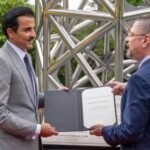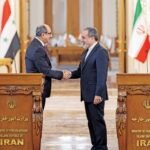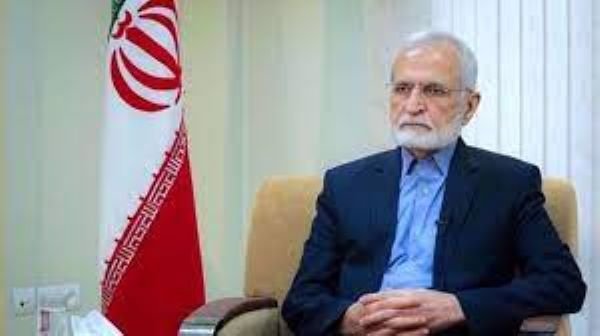
By Amjad Ahsan Rizvi (translated from Hindi to English)
The recent comments by Kamal Kharazi, a former Iranian Minister of Foreign Affairs and adviser to Supreme Leader Ayatollah Ali Khamenei, have intensified global concern over the possibility of a significant escalation in Middle Eastern tensions. With Israel and Iran already locked in a long-standing geopolitical rivalry, any indication of a shift in Tehran’s nuclear doctrine raises alarm about the potential consequences for regional and global stability. For decades, Iran’s nuclear ambitions have been a focal point of international diplomacy and conflict.
While Iran has maintained that its nuclear program is for peaceful purposes, many in the international community, including Israel and the United States, have been skeptical, imposing sanctions and taking preventive military measures to curb Iran’s capabilities. Ayatollah Khamenei’s 2000s declaration that the development and use of nuclear weapons are ‘haram’ (prohibited) has been a crucial part of Iran’s narrative. This religious edict has served as a key argument to counter accusations that Tehran intends to develop nuclear arms.
However, Kharazi’s recent statements represent a potential departure from this stance. He suggested that, under the specter of an existential threat, Iran could reassess its nuclear policy and weaponize its nuclear technology. This warning comes amidst heightened regional tensions, particularly following an October 26 Israeli airstrike on Iranian targets. Kharazi’s words align with other Iranian officials’ statements over the past few years that have hinted at a shift if Iran feels cornered or under severe threat.
A potential change in Iran’s nuclear policy could lead to severe consequences for regional security. Israel has consistently maintained that it will not allow Iran to develop nuclear weapons, viewing this as an existential threat. In response, Israeli policymakers have not ruled out pre-emptive strikes against Iranian nuclear facilities, as they demonstrated in past operations against Iraq (1981) and Syria (2007). Should Iran signal a concrete move towards developing nuclear weapons, it is almost certain that Israeli military action would follow, sparking a full-blown conflict.
The ripple effects of such a conflict would likely plunge the Middle East into chaos. Countries allied with Iran, such as Syria, Hezbollah in Lebanon, and various proxy militias, could become embroiled in fighting, drawing in other regional powers. The United States, with its strategic interests and alliances in the region, would also face pressure to respond, further complicating the geopolitical landscape.
The international community, particularly the P5+1 nations (China, France, Russia, the United Kingdom, the United States, plus Germany), may need to act swiftly to prevent a dramatic shift in the status quo. Renewed diplomatic efforts and negotiations could be essential to staving off a crisis. The Joint Comprehensive Plan of Action (JCPOA), which the U.S. withdrew from in 2018, may need to be reconsidered or strengthened to include stricter safeguards and monitoring.
Iran’s signaling of potential changes to its nuclear doctrine should not be dismissed as mere rhetoric. Kharazi’s statements and Khamenei’s orders for military preparedness suggest that Tehran is willing to escalate if provoked. This stance poses a clear message to both Israel and its Western allies that Iran’s deterrence policy could transform rapidly if it feels its survival is at stake.
Kamal Kharazi’s comments have brought a new level of urgency to the discourse surrounding Iran’s nuclear ambitions and its geopolitical strategy. As tensions between Israel and Iran continue to simmer, the potential for conflict remains high. The situation requires careful management, as any misstep could lead to a catastrophic escalation that would affect not just the regional powers but the global community as a whole.










